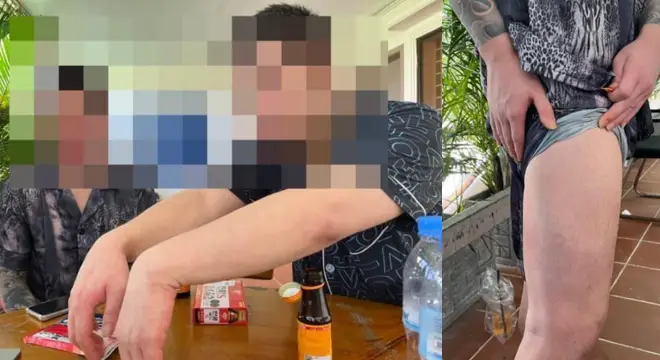Have you ever imagined that a simple trip abroad could turn into a nightmare?
How did a 22-year-old Korean student get kidnapped and tortured in Cambodia?
Is this just one isolated incident, or is it part of a larger crisis?
And how safe is Cambodia for Korean travelers today?
Reports in 2025 show that over 330 Koreans have been victims of abduction, imprisonment, and scams in Cambodia. From online job scams to violent criminal gangs, innocent travelers are at serious risk. Let’s see what’s happening.
1. The Tragic Case: 22-Year-Old Korean Student
On July 17, 2025, a 22-year-old student, known only by the surname “A,” traveled from Yecheon, North Gyeongsang Province, to Cambodia for a summer exhibition. About a week later, his family received a ransom call demanding 50 million won ($35,000) for his release. Despite contacting the Cambodian Embassy and local authorities, the kidnappers disappeared.
Tragically, on August 8, the student’s body was found near Bokor Mountain, Kampot Province. Authorities confirmed he died from cardiac arrest due to torture. The family said:
“The death certificate says cardiac arrest due to torture. He is still in a freezer — it feels like he is being killed twice.”
This heartbreaking case shows just how dangerous Cambodia has become for Koreans.
Full story → 22-Year-Old Korean Student Kidnapped
2. This Is Not an Isolated Case: Hundreds Affected
The student’s case is only one example. In recent years, abduction and detention cases have sharply increased:
| Year | Reported Cases | Source |
| 2022–2023 | 10–20 | MOFA / News.Az |
| 2024 | 220–221 | Korea Economic Daily |
| 2025 (July) | 252 | Korea Herald / Nation Thailand |
| 2025 (Aug) | 330 | News.Az citing lawmaker Na Kyung-won |
The South Korean government has issued urgent travel warnings for Sihanoukville, Bavet, and Bokor Mountain.
More → Koreans Kidnapped in Cambodia
3. How the Scam Network Works
Many Koreans are lured by fake overseas job offers, such as “tech jobs” or other high-paying positions. These schemes are mostly run by Chinese-led gangs, sometimes with help from local officials.
Upon arrival, victims’ passports are confiscated, and they are forced to work in illegal call centers or cybercrime operations. Those who resist face beatings, electric shocks, starvation, and psychological abuse.
One rescued woman shared:
“At least 13 Koreans are still locked in the same buildings. They are treated like slaves — identified only by numbers.“
3. Victims’ Ordeal – Explained
This section highlights the extreme suffering Korean victims faced in Cambodia scam compounds. It can be understood in four main parts:
1. Torture
- Victims were physically abused in horrifying ways:
- Beatings with metal pipes
- Electric shocks on thighs or body
- Hanging from ceilings
- Beatings with metal pipes
- This shows the sheer brutality and the lengths gangs went to force compliance.
2. Prison-like Conditions
- Living conditions were inhumane and overcrowded:
- 12 people sharing just two beds
- Only one meal per day (no proper nutrition)
- Ankles chained during work hours, handcuffed to beds at night
- 12 people sharing just two beds
- Victims were essentially treated like prisoners or slaves, with no privacy, rest, or freedom.
3. Psychological Trauma
- Beyond physical abuse, victims suffered mental and emotional torture:
- Constant fear of death or severe punishment
- Fainting in dark rooms without daylight or air
- Enduring extreme abuse caused long-term trauma
- Constant fear of death or severe punishment
- This highlights that the scars were not just physical but deeply psychological.
4. Escape Attempts
- Victims didn’t give up and found clever ways to reach the outside world:
- Exploiting loopholes in monitored Wi-Fi to send their location
- Contacting family or Korean MPs like Rep. Park Chan-dae, which led to partial rescues
- Exploiting loopholes in monitored Wi-Fi to send their location
- These attempts show bravery and resilience, even in the face of extreme danger.

4. Cambodian Crime Compounds
Many businesses that seem normal are actually cybercrime compounds. Amnesty International reports over 50 such operations in Cambodia. These compounds are central to abductions, forced labor, and online scams, operating largely outside local authorities’ control.
It’s no longer just Cambodia. The US and UK have taken action against Chen Zhi, a UK-Cambodian businessman, accused of running massive crypto scams exploiting forced labor. Shockingly, these scams are spreading to Myanmar, using new tech like Starlink to operate undetected. Young Koreans need to know this isn’t just a local problem — it’s a global criminal network.
Victims like “Park” were found dead after severe abuse, showing how systematic and life-threatening these operations are.
5. South Korean Government Response
South Korea has taken several measures:
- Issued travel warnings for high-risk areas
- Launched a Korean Desk in Cambodia for rapid response
- Pressed Cambodian authorities diplomatically
However, limited embassy staff and the complexity of these criminal networks make it impossible to respond to every case. Initially, reports said 330 Koreans were missing in Cambodia. Latest updates show 80, of which 63 are currently detained. Some were forced, while others went willingly, showing how complicated and dangerous the situation has become.
6. Human Cost and Trauma (leave as is)
Every abduction comes with fear and heartbreak. Families face sleepless nights, urgent calls, and ransom threats. Survivors often return home with post-traumatic stress, guilt, and anxiety. Most victims are young Koreans in their 20s and 30s, seeking opportunity but falling into a nightmare.
7. Awareness & Prevention – Explained
This part is all about how Koreans (or anyone traveling) can protect themselves from scams and kidnappings in Cambodia. Here’s what it means:
- Key Warning: Avoid overseas job offers without thorough verification With scams now crossing borders, verifying every overseas job offer is critical. Even jobs that seem legitimate can lure you into dangerous scams or forced labor. Always check employer credibility, visa rules, and local safety. Follow embassy advice closely
- Don’t blindly trust online job ads promising high salaries abroad.
- Many of these offers are fake and are used to lure people into scams or even kidnapping situations.
- Always check the company, recruiter, and job legitimacy before accepting anything.
- Check employer credibility, visa regulations, and local conditions
- Verify the employer through official channels. Look for reviews, official registration, or embassy confirmation.
- Make sure your visa type matches the work you’ll do. Fraudsters often trick people into illegal work that can get them detained.
- Research the local conditions — certain regions in Cambodia (like Sihanoukville or Bokor) have a higher risk for scams and crime.
- Korean government advises travelers to exercise extreme caution in Cambodia
- South Korea has issued travel warnings, especially for areas with known criminal activity.
- Travelers should follow embassy guidelines, register with the Korean embassy, and avoid high-risk areas.
- Basically: don’t go alone, don’t trust strangers promising jobs, and stay alert at all times.
In summary, this section involves safeguarding yourself- staying knowledgeable, alert, and abiding by official guidance can assist in keeping you from falling prey to dangerous scams or criminal networks.
8. Takeaway and Awareness
- Research every overseas job offer thoroughly
- Travel to high-risk locations only with embassy approval
- Report any suspicious recruiters or messages right away
- Check government alerts frequently
9. Conclusion: A Wake-Up Call
The growing concern over increased kidnapping and scam incidents involving Koreans in Cambodia. From the recent, (and tragic), death of a 22-year-old student to hundreds of other reported instances, it’s clear that the need for awareness, caution, and a response from our government is necessary.
This isn’t just a issue for people in Cambodia; this is a worldwide issue for many young Koreans. Awareness, caution, and verification are your best tools for personal protection. These instances should be viewed as some sort neutral warning: risking yourself for any opportunity overseas is not worth it. Stay aware; find out about it and tell your friends about it; and to be safe while travelling.


